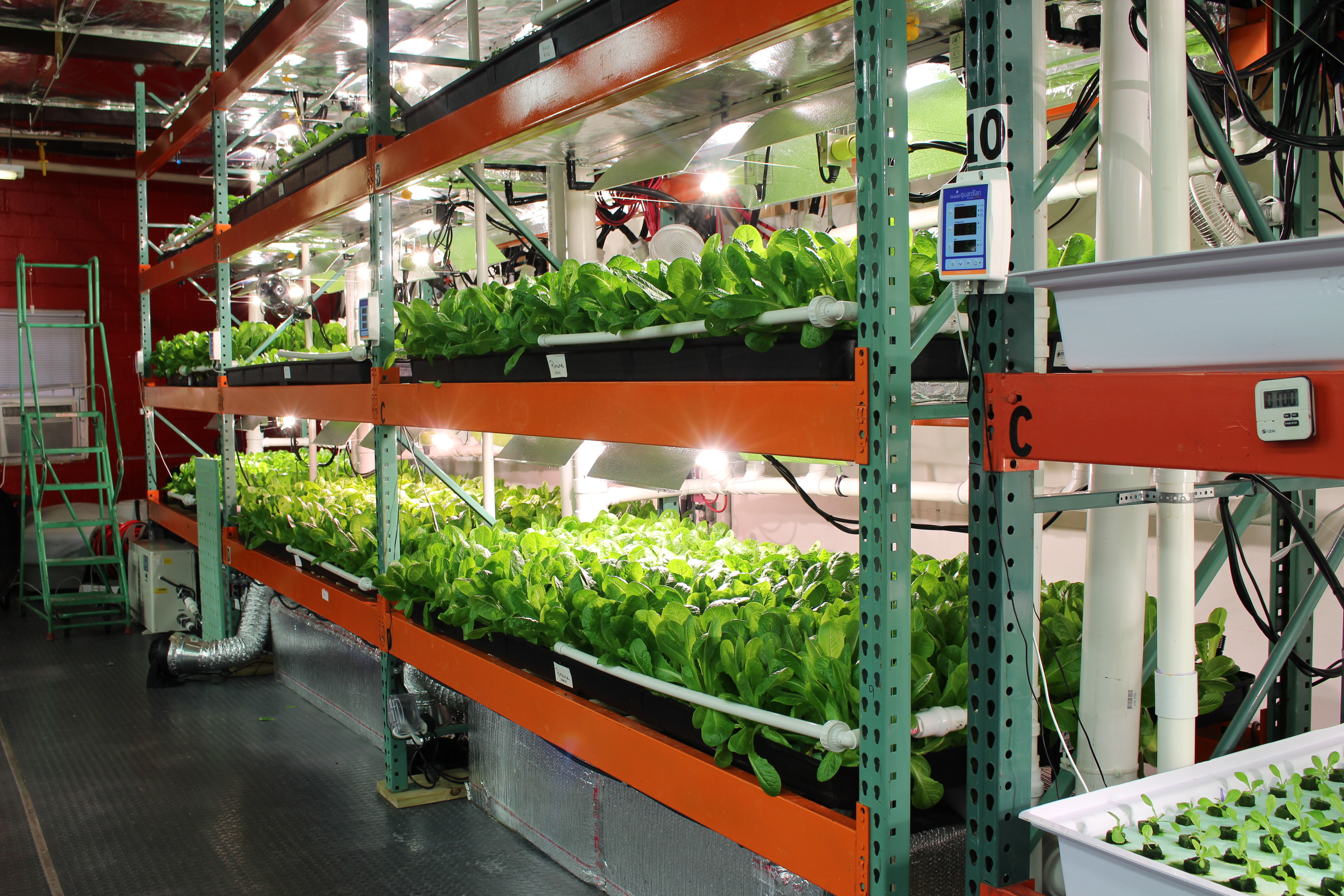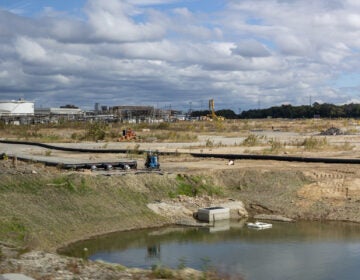Advocates pitch vertical farming to a City Council ready to help

Jack Griffin, a former Wall Street executive and founder of Metropolis Farms, knows how to sell. In a 40-minute testimony in front of City Council’s Commerce and Economic Development Committee this week he extolled the virtues of his business, a local and successful hydroponic, vertical, vegan farm in South Philadelphia, and the many advantages to indoor vertical farming in cities.
His arguments were amplified by testimony from more than 10 advocates of vertical and hydroponic farming and aquaponic systems, including the city’s Parks and Recreation and the Controller’s office, and an audience of more than 60 people.
Last April, Council adopted a resolution introduced by Councilmember Al Taubenberger, who has a degree in agronomy himself, authorizing public hearings on indoor farming. Taubenberger’s vision is to expand this promising new agriculture industry and transform the city into an international teaching hub for this nontraditional technique.
“I’ll give you the seven best reasons to use this,” Griffin told the Council. “September, October, November, December, January, February and March.”
By not depending on climate, soil or water, indoor farms are more reliable and sustainable. Because they’re climate-controlled and don’t depend on seasons they can produce the same crops year-round. Hydroponic farms don’t use soil and therefore they don’t have risks of soil contamination, and by piling plants in tiers and shelves, vertical farming can produce more food using less money and less space than traditional farms.
According to Metropolis Farms’ website, their farming methods use 98 percent less water and 82 percent less energy than conventional farms and can grow in 36 square feet what it would normally takes to produce on one acre. They use zero pesticides and herbicides, they’re vegan certified. Their second food production farm, opening in February 2017, will become the first solar powered vertical farm in the world.
“There are thousands of square feet of empty space,” Griffin said talking about the growing potential of these farms in Philadelphia. “It’s kind of a no-brainer.”
Alan Butkovitz, the City of Philadelphia Controller, explained that although anchor institutions like hospitals and universities represent about $14 billion in Philadelphia’s annual economic activity, including about $5 billion in spending on good and services, most of these dollars leave the city. Butkovitz discovered Metropolis Farms while trying to source local providers for the city’s Anchor Procurement Initiative. Since then, his office is persuading food buyers to shift some of their spending to the local farm.
“A day walk through this facility is a semester’s worth of education,” Butkovitz testified, praising what he called the farm’s both simple and revolutionary technology and it’s entirely local workforce. “My suggestion is that we concentrate more on increasing the demand for these products.”
Institutional demand would allow Metropolis Farms and smaller ones like HomeGrown Farms to scale up and produce food for the city’s hospitals, schools, prisons and universities, which at the same time would create more jobs.
“The way out of poverty is a job, and we have a criteria of $18 an hour and benefits would break the cycle. The economics of the work we’ve done with Jack [Griffin] clearly creates those jobs,” said David Griffith, executive director of Episcopal Community Services (ECS), one of the oldest social service agencies in Philadelphia. “We spent three years working for jobs and workforce development; this has by far the highest potential that we’ve have been able to find.”
Griffith, who has worked as a corporate executive and serves as a trustee of the Academy of Natural Sciences, called vertical farming a unique opportunity and a major game-changer for the city.
“We are 100 miles to 60 percent of the US markets, so the opportunity to create a major green business is extraordinary,” Griffith added.
According to Griffin, indoor urban farming produces more food using 20 times less money in 80 percent less space, and it’s easy to build, easy to scale, and easy to staff. Metropolis Farms has been employing local residents with little expertise, many of them ex-offenders and veterans, and training them to run the farm.
“This is 10 million dollars of letters of intent to build farms for other cities, right in my hand right now,” Griffin said raising a booklet. “This is happening. So how are you going to supply this demand? Real jobs right now.”
Metropolis Farms is building farms in New York City, Washington D.C., Baltimore, San Francisco, Toronto and expanding in Philadelphia to a second location on Swanson Street at Delaware Avenue. It pre-manufactures and builds all the hardware parts needed in Philadelphia too. Metropolis is also building a research and development facility focused on growing the best possible crops without using of GMOs, pesticides or chemical enhancements, and developing applications for stevia and plant based fuels that create bio-science jobs. For example, Griffin told the Council his company built a kind of light that costs one third of the price of traditional LED light used in indoor farms, and produces twice the amount of light using 200 percent less electricity.
“Thank you all for your patience and for bringing this not new, but new to us technology,” said Councilmember Curtis Jones Jr. enthused. “It’s really OK today for Philadelphia to be first at things.”
Council asked Griffin to help them come up with industry standards. “If you are looking for help from us, we are also looking from a standard from you,” Jones said.
Griffith, from Episcopal Community Services, said he already has the funding needed to create several indoor farms in their locations. What they need from the city now, he said, is greater clarity on all of the necessary permits, licenses, and inspections that are required for these unconventional projects, so that process can move swiftly.
“If this is to become successful and move quick and provide jobs quick it would be great if a task force could be put together to fast-track this permits,” Griffith said.
Steven Hughes, an aquaponics and hydroponics professor at Cheyney University urged the city to create regulations before the U.S, Department of Agriculture does.
“Tell us what we need to know,” said Jones. “We don’t want to over regulate anything. We’ll tax everything, but we don’t want to over regulate.”
WHYY is your source for fact-based, in-depth journalism and information. As a nonprofit organization, we rely on financial support from readers like you. Please give today.






